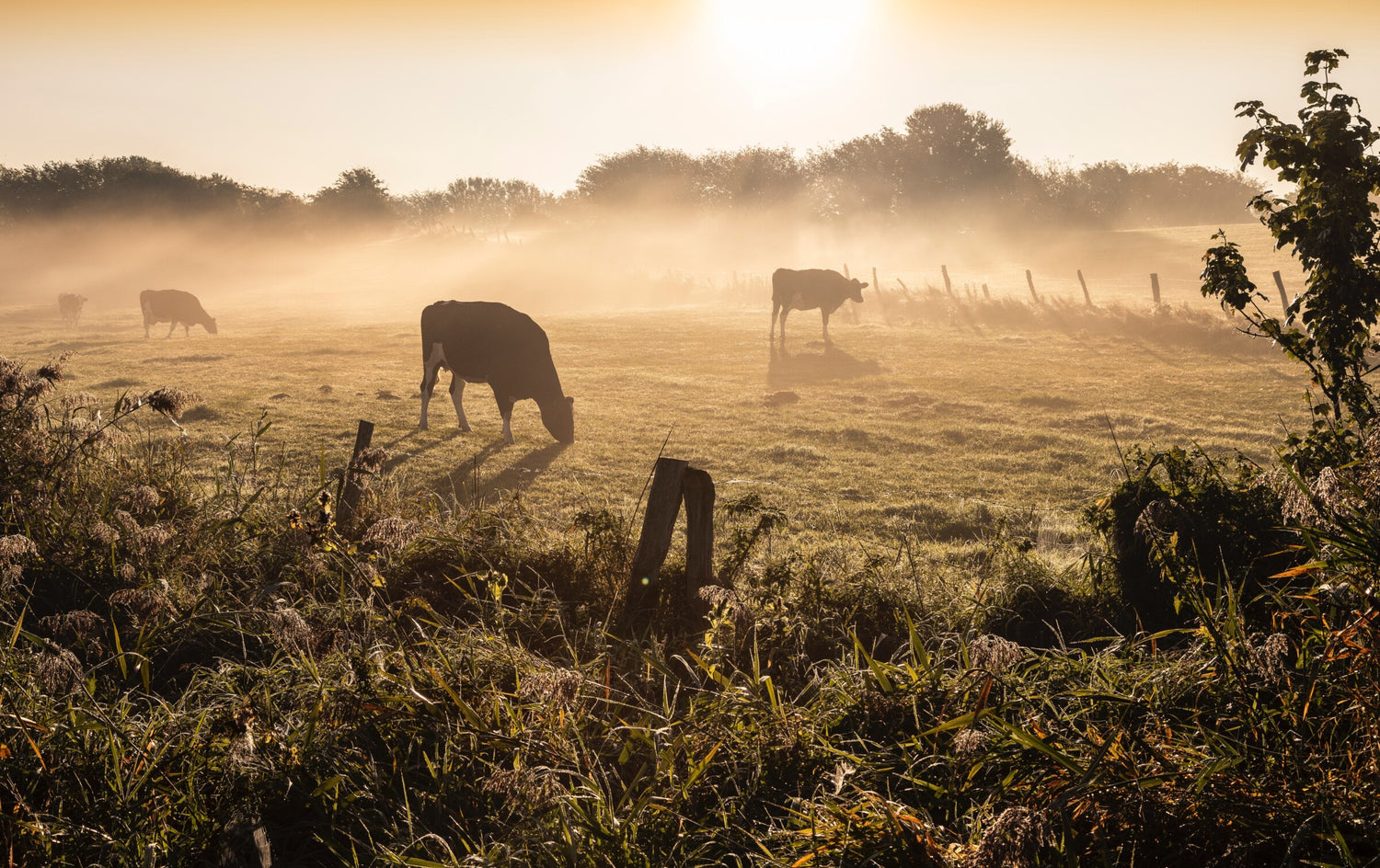If the environment is important to you, you've probably already heard of the main causes of climate change: greenhouse gases, plastic in the oceans, deforestation, the accumulation of waste and so on. But did you know that the production and consumption of meat also has a large share of responsibility for the effects that contribute to climate change on the planet?
Without necessarily adopting a vegan diet, it is still possible to mitigate the effects of climate change by choosing to reduce your meat consumption.
Air and water pollution

Animal agriculture is attributed up to 51% of global greenhouse gas emissions, including more than 9% of carbon dioxide (CO2) emissions, 35-40% of methane emissions and 65% of nitrous oxide (N2O) . These gases generally have the effect of warming the planet by trapping heat in the atmosphere. They thus contribute to air pollution and smog, which can lead to health problems, particularly in terms of breathing. Worse still, methane (a gas produced by the flatulence of cows, and there are a lot of them) has a warming power 100 times more powerful than CO2, while N2O is 300 times more powerful .
Cow flatulence is one thing, but what about their droppings? It has to go somewhere...and sadly, cow dung isn't chemically treated like human dung. It is disposed of in a number of ways, and much of it ends up in the ocean, which now has more than 150,000 square kilometers of “dead zones” where nothing survives .
Roughly speaking, raising animals contaminates the air and water quite significantly. And the biggest culprits are beef and dairy producers.
Drinking water consumption

On the other hand, animal husbandry requires an enormous amount of water. While the human population consumes approximately 19.7 trillion liters of water per day, cows alone consume over 170 trillion . Hard to digest, especially considering that more than 10% of the planet's population does not have access to drinking water . This is even the case for several communities located in Canada . In addition, the production of animal meat requires up to 26 times more water than the production of soybeans .
If we consider that the production of a pound of beef requires 9,500 liters of water , the ability to reduce its water consumption increases dramatically as we make conscious choices to reduce our consumption of water. meat.
Deforestation and habitat destruction

Animal farming is also responsible for 91% of the destruction of the Amazon rainforest , which has a direct impact on its ability to absorb CO2 from the atmosphere, destroys the habitats of wildlife there. and destabilizes the communities that live there. Moreover, the space dedicated to the agriculture of livestock occupies 45% of the habitable space of the Earth . Under these circumstances, it is not surprising that so many species are threatened on the planet.
The oceans are not spared: the fishing strategy is generally to go blind, with giant nets, and results in catching much more than just the fish that will end up on our plate. Every year, more than 650,000 whales, dolphins and seals, as well as more than 50 million sharks become victims of commercial fishing, called "bycatch" Some experts believe that we are heading straight for an ocean completely devoid of fish by 2048 .
Global food crisis

credit: Unsplash
The world population is growing and could reach ten billion by 2060 . At the same time, global demand for meat has quadrupled in the past 50 years, rising from 75 million tonnes to over 300 million . At this rate, farmers will soon not be able to supply enough meat to meet demand.
In fact, the food crisis already underway in some countries will worsen at an accelerated rate. The space used for agriculture is largely occupied by the livestock industry, which needs much more space to produce a smaller amount of food than other types of crops. For example, it takes six to 17 times more space to produce one pound of animal protein than one pound of soy protein . In addition, half of the grains and pulses grown in the world go to feed livestock, rather than humans .
If we want to feed the population in a sustainable way, we will eventually have to face the music and change our eating habits.
Health effects

Animal agriculture has many effects on climate change, but eating meat can also have adverse health effects, such as increasing the risk of heart problems and cancers .
On the contrary, plant-based diets have many benefits, including improving breath, body odor, skin, allergies, PMS, migraines, mood, energy and libido .
How to reduce your meat consumption

Meat production and consumption is only one component of many that contribute to climate change. We will certainly not solve all our problems by stopping eating it, but reducing its consumption is at least a step in the right direction.
As it is about changing habits and behaviors, there is no single strategy that works for everyone. That said, here are some ideas that might inspire you:
- Do your research or consult a professional: as with any diet, it is important to maintain a balance and ensure that you are getting all the essential nutrients and proteins to maintain a healthy body.
- Find Substitutes: There are countless books, websites, blogs, social media accounts and more where you can find recipe ideas, and most importantly, suggestions for animal product substitutes to cook delicious meals.
- Challenge yourself and invite your family and friends to participate: several popular movements, such as Veganuary (Vegan January) or Meatless Monday are growing in popularity. These are time-limited challenges that can help you incorporate meatless recipes into your diet.
Whatever you choose to do, go at your own pace. Would you like to reduce your meat consumption, but you are having difficulty? Do not be discouraged; try to see this experience as a continuum, not as a pass or fail test. Start, stop, take breaks… there is no right or wrong strategy. Figure out what works for you, without judgment. After all, perfection does not exist and it will be much easier if you enjoy it.

Reviewed by MF Editorial






































Leave a comment
This site is protected by hCaptcha and the hCaptcha Privacy Policy and Terms of Service apply.